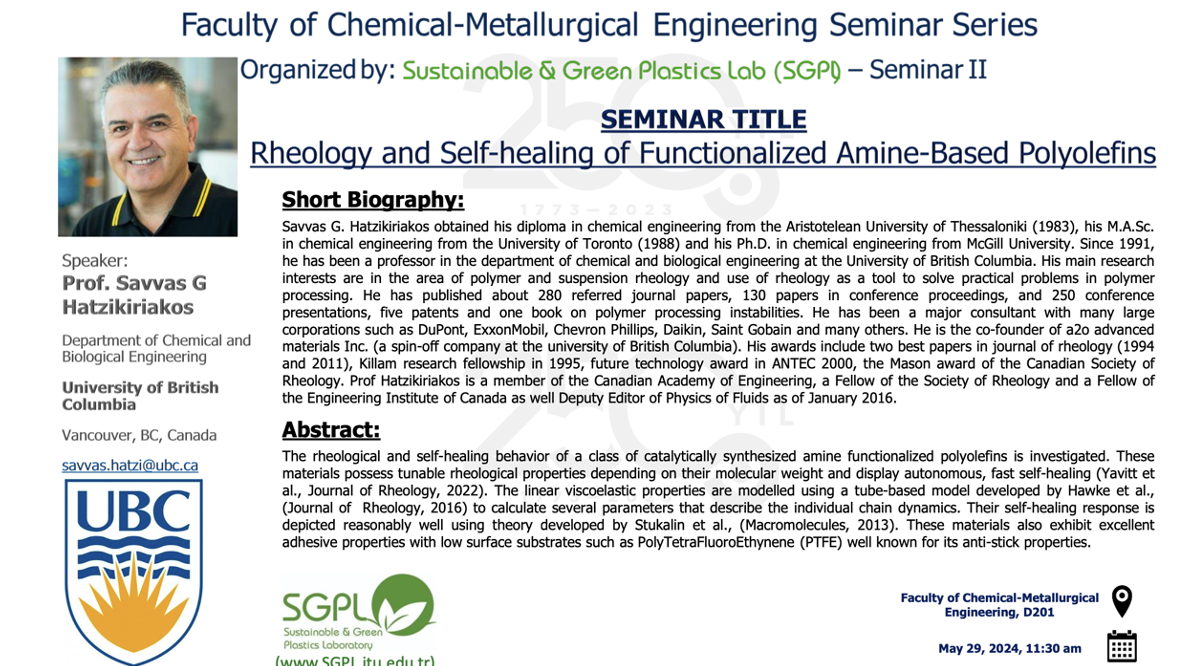by
Evren Demircan | Jul 10, 2024
Prof. Savvas G. Hatzikiriakos from the Department of Chemical and Biological Engineering at the University of British Columbia delivered a comprehensive seminar at our Faculty on May 29, 2024, presenting his research on “Rheology and Self-Healing Behavior of Functionalized Amine-Based Polyolefins.

Prof. Savvas G. Hatzikiriakos from the Department of Chemical and Biological Engineering at the University of British Columbia delivered a comprehensive seminar at our Faculty on May 29, 2024, discussing the rheological and self-healing behavior of a class of catalytically synthesized amine-functionalized polyolefins.
These innovative materials exhibit controllable rheological properties based on their molecular weights and demonstrate autonomous, rapid self-healing capabilities (Yavitt et al., Journal of Rheology, 2022). The linear viscoelastic properties were successfully modeled using a tube-based model developed by Hawke et al. (Journal of Rheology, 2016), which calculates various parameters defining individual chain dynamics. The self-healing properties were effectively illustrated using the theory developed by Stukalin et al. (Macromolecules, 2013).
Additionally, these materials exhibit excellent adhesive properties with low surface energy substrates such as Polytetrafluoroethylene (PTFE), known for its anti-adhesive characteristics. The findings presented in the seminar are poised to open new horizons in materials science and engineering, paving the way for future research.